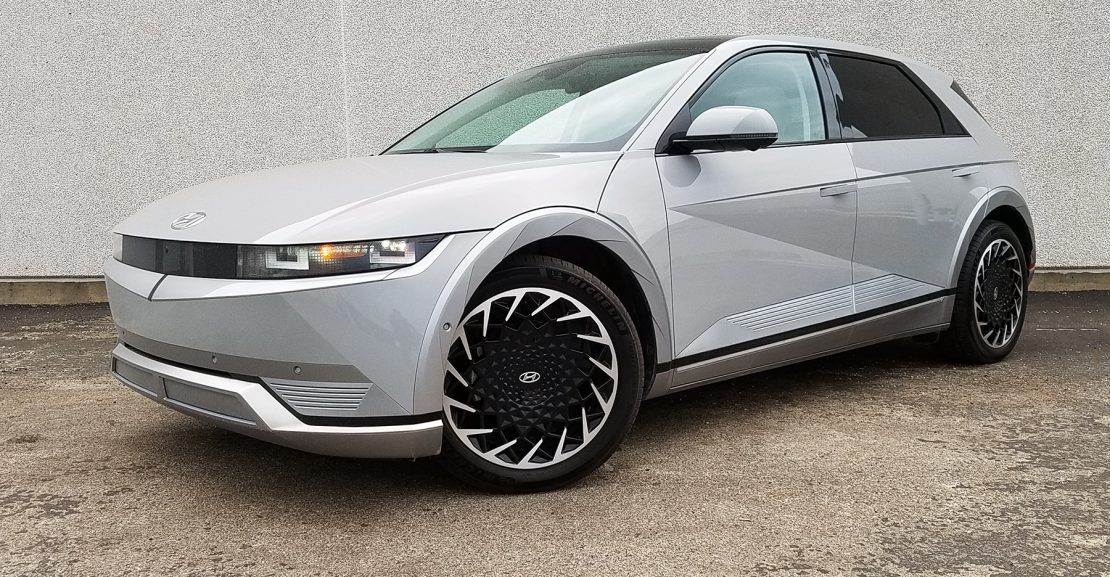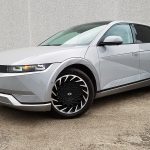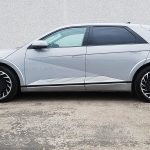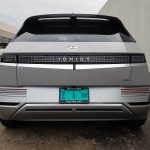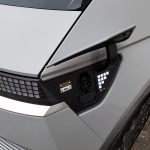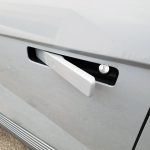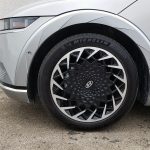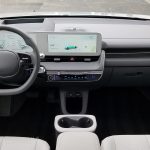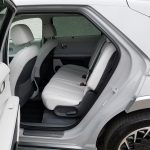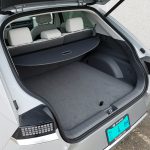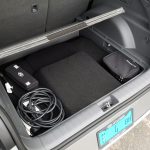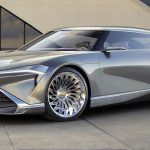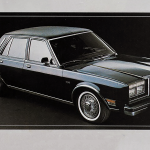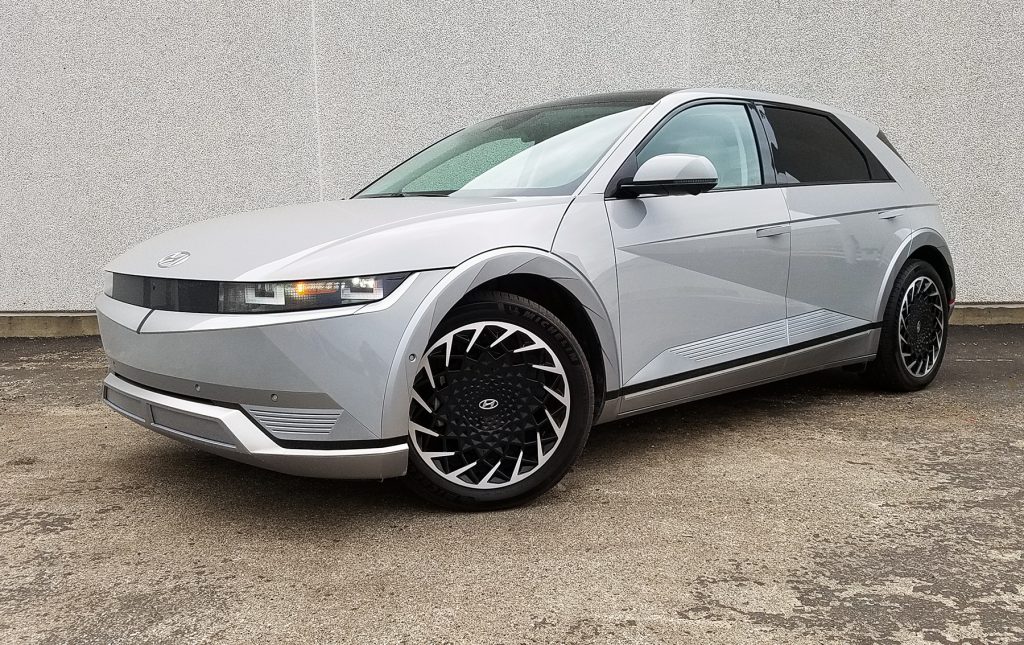

Text by John Biel
2022 Hyundai Ioniq 5 Limited AWD
Specs
Class: Electric Vehicle
Miles driven: 603
Battery capacity: 77 kWh
| CG Report Card | |
|---|---|
| Room and Comfort | A- |
| Power and Performance | B+ |
| Fit and Finish | B+ |
| Fuel Economy | A |
| Value | A- |
| Report-card grades are derived from a consensus of test-driver evaluations. All grades are versus other vehicles in the same class. Value grade is for specific trim level evaluated, and may not reflect Consumer Guide's impressions of the entire model lineup. | |
| Big & Tall Comfort | |
| Big Guy | A |
| Tall Guy | B+ |
| Big & Tall comfort ratings are for front seats only. "Big" rating based on male tester weighing approximately 350 pounds, "Tall" rating based on 6'6"-tall male tester. | |
| Drivetrain | |
| Engine Specs | 320 horsepower |
| Engine Type | Electric motors |
| Transmission | Automatic |
| Drive | All-wheel drive |
EPA-estimate MPGe: 110 city/87 hwy/98 combined
EPA-estimated driving range: 256 miles
Consumer Guide range estimate (ideal conditions): 256 miles
Base price: $54,500 (not including $1225 destination charge)
Options on test vehicle: Carpeted floor mats ($195)
Price as tested: $55,920
Pros and Cons
The great: Quick acceleration; generous level of standard equipment; fast-charging capability
The good: Good passenger and cargo room for the size; respectable driving range; striking styling inside and out; pleasant ride/handling balance
The not so good: Numb steering feel; some unconventional controls require acclimation; limited availability for now
More Ioniq 5 price and availability information
Overview
What is the Ioniq 5? “Wasn’t that,” you think, “the original name of the Star Wars cantina band when the boys(?) met up in their college days?” Interesting guess but no. It’s actually a brand-new 5-passenger compact crossover EV from Hyundai.
The Ioniq 5 possesses plenty of usable power, decent range, and a quick recharge rate. It’s also quite roomy for passengers.

Prices and Trim Levels
When the Ioniq 5 was launched—as the first of a series of Ioniq pure-electrics—it came in three trim levels and two configurations. SE, SEL, and Limited models could be had with rear-wheel or all-wheel drive. The driveline choice affects power and projected range: The single-motor rear-drive version has 225 horsepower and an EPA-estimated range of 303 miles; the dual-motor AWD boasts 320 horsepower but a range of 256 miles. (Due out during the model year is a “Standard Range” rear-wheel SE with 168 horsepower, 220-mile range, and a starting price just shy of $41,000.) Sales are initially restricted to 18 states, with more to be announced.
CG’s first exposure to the Ioniq 5 came at the very top with an AWD Limited. With nothing but a $195 set of carpeted floor mats added to it, the full delivered price came to $55,920. The first thing you’ll note about it is mechanistic styling with sharp creases, parallel-lined highlights, and geometric shapes—indeed, the bodysides seem to be formed from abutting right triangles. Wheel flares have the look of jointed segments fanned out around the openings.
Buick Brings Back Electra Name; Wildcat EV Concept Forecasts Design Direction
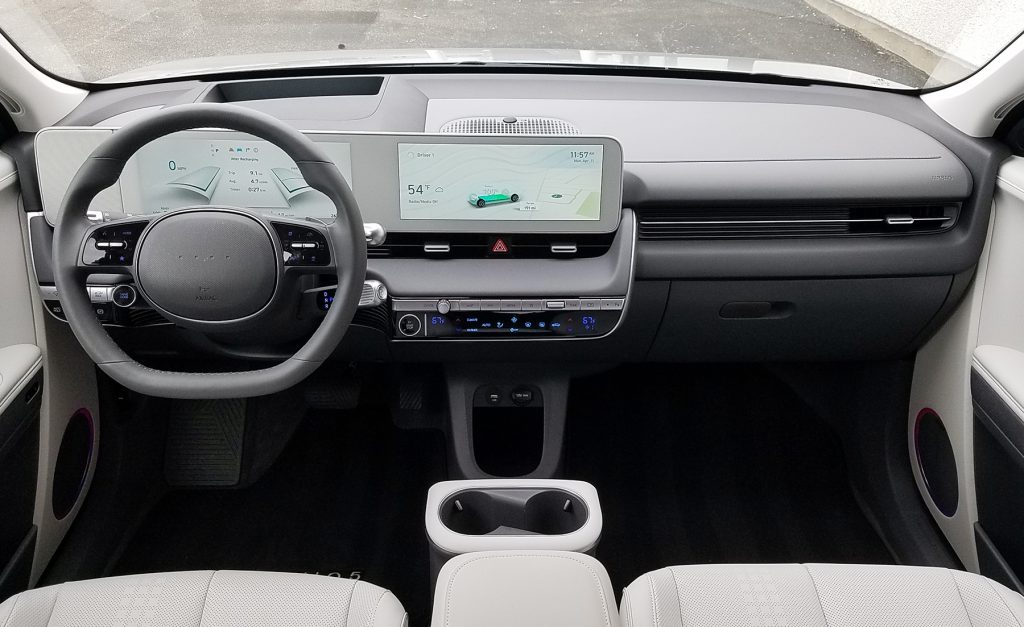
Cabin Design
The test-vehicle’s cabin had an almost-clichéd EV “clean room” look with two-tone gray surfaces—the lighter shade practically white—and satin-finish silver for metal trim, door handles, power-window controls, etc. A unified flat panel displays driving and infotainment readouts on side-by-side screens, which go to a white background in daylight. And, of course, no mere sequential lever or rotating dial will do for drive engagement (it’s hard to call it “shifting”). In the Ioniq 5, a short stem off the right side of the steering column ends in a small lever that can be twisted to summon Drive, Neutral, or Reverse; depressing a button in the end of the lever activates Park. At least it is easy to use.
Options
Ioniq 5s are effectively self-contained packages at each trim level, with only all-wheel drive, a couple of special paint colors, and a handful of convenience accessories available to pump up the price. Thus, the Limited is as utterly loaded as one of its kind can be with features like 20-inch alloy wheels; full LED exterior lighting; heated, power-folding exterior mirrors; hands-free liftgate; heated and ventilated front seats with power adjustment and driver’s seat memory function; keyless entry and starting; dual-zone climate control; and fixed panoramic sunroof with power shade.
First Spin: 2023 Subaru Solterra
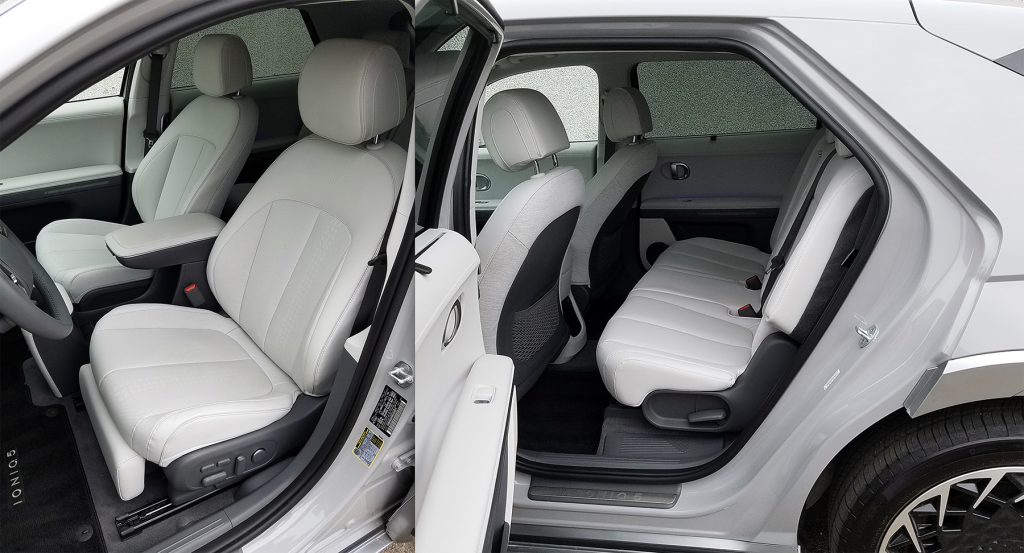
Connectivity
Tech conveniences include wireless charging, navigation, Android Auto/Apple CarPlay smartphone compatibility, head-up display, surround-view monitor, adaptive cruise control, Remote Smart Parking Assist (for getting the vehicle in or out of tight spaces while the driver stands outside), and Bose audio with satellite and HD radio. Forward, blind-spot, and rear cross-traffic collision avoidance; lane-keeping assist; and reverse parking-collision avoidance are among safety-oriented driver aids. Also, Limiteds can charge electrical items—even another electric car—via a Vehicle-to-Load on-board charger.
Charging
The Ioniq 5’s 77.4-kWh battery pack can, Hyundai claims, go from 10 percent to fully charged in about six and three-quarter hours with Level 2 charging. Hooking up to DC Level 3 fast charger is said to recharge from 10 percent to 80 percent in approximately 18 to 25 minutes, depending on the voltage of the device. (Note that Hyundai gives buyers unlimited 30-minute charging sessions at Electrify America locations for the first two years of ownership.) As with any EV, ambient temperature can affect charging. For instance, this driver inherited the test vehicle with an indicated 91 percent of charge and 193 miles of range after it had been “feeding” for about seven hours on a day with air temperatures in the mid to high 30s Fahrenheit.
2022 New York Auto Show: 2023 Nissan Leaf
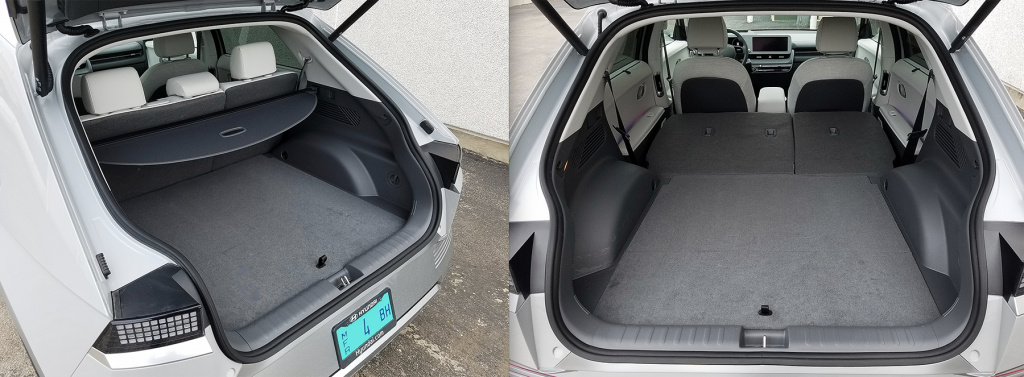
Power and Performance
The dual motors in AWD models deliver ample, instantly realized power. Distinct performance characteristics attend each drive mode—“Comfort,” “Eco,” “Sport,” or “Snow”—and they affect indicated range. At the end of my 114.8-mile stint, Eco projected about three more miles of remaining range than Comfort, which had a three- to four-mile advantage on Sport. Regenerative energy capture helps to maintain battery charge. Indeed, despite what the trip odometer reported, the projected remaining range made it appear that I had only gone 72 miles and still had 51 percent of charge left. In the default state there’s a noticeable instant drag when you let off the accelerator. Steering-wheel paddles permit dialing up enough regenerative resistance to reach one-pedal driving, where you can bring the vehicle to a complete stop by lifting off the throttle pedal—as long as you don’t need to come to an quick stop, using brake pedal is often not necessary. If you prefer a traditional combustion-engine “coasting” feel when you lift of the throttle pedal, the steering-wheel paddles allow that setting too.
Ride is comfortable and handling is easy but not especially compelling. There’s an overall numbness that seems to match the in-the-middle-of-a-cloud mood of the cabin décor. Some tire noise is audible but probably only because there’s no engine noise to mask it.
Test Drive: 2021 Volvo XC40 Recharge
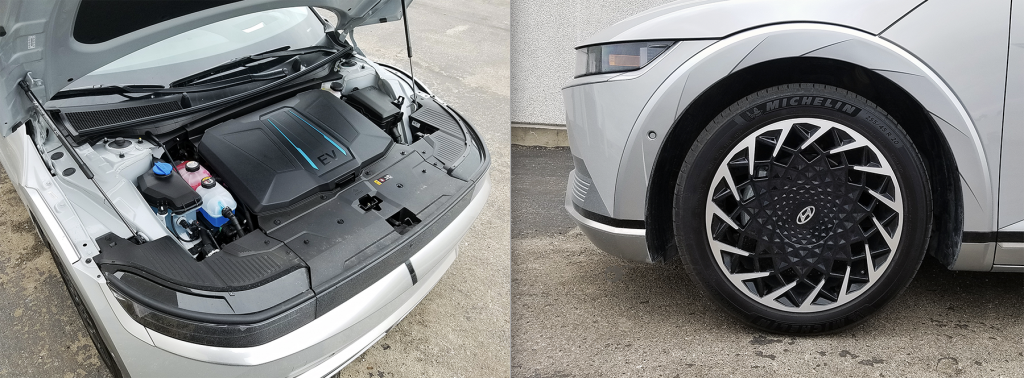
Room and Comfort
There’s very good passenger room in both rows, and a flat floor makes 3-abreast second-row seating viable. Cargo space behind the second row is just all right, compromised somewhat by the roof slope. There is small-item space under the floor. Lots more capacity appears when the 60/40-split seats are folded. They don’t rest completely flat but are contiguous with the load floor.
Leatherette drapes seats and door panels. Soft, padded areas are quite expansive. The glove box is big. In place of a console there’s a pedestal (adjustable in the Limited) for twin cup holders, floor-level “purse porch,” and suspended armrest with a shallow storage bin. Way down on the floor—well out of easy reach—is an open cubby with USB port and 12-volt socket. All doors have pockets with bottle holders, net pouches are on the backs of the front seats, and cup holders reside in the rear-seat armrest. Audio settings were simple to input on the touchscreen—the current standard Hyundai unit. Functions (map, media, etc.) are activated by push buttons but climate is controlled by a touch-sensitive pad. At least they respond without undue effort. Oddly, navigation directions are given out at a volume soft enough to be overcome by the radio.
That is the Ioniq 5. As for the cantina band, it broke up. “Artistic differences” was the official reason but actually the members didn’t handle movie fame well. Seems they all got big heads.
CES 2022: Chrysler Airflow Concept

Listen to the Consumer Guide Car Stuff Podcast
2022 Hyundai Ioniq 5 Limited Pictures
(Click below for enlarged images)
All-New Hyundai Ioniq 5 Joins 2022 Consumer Guide Best Buy List

